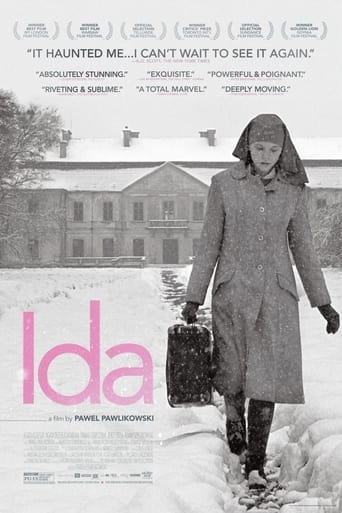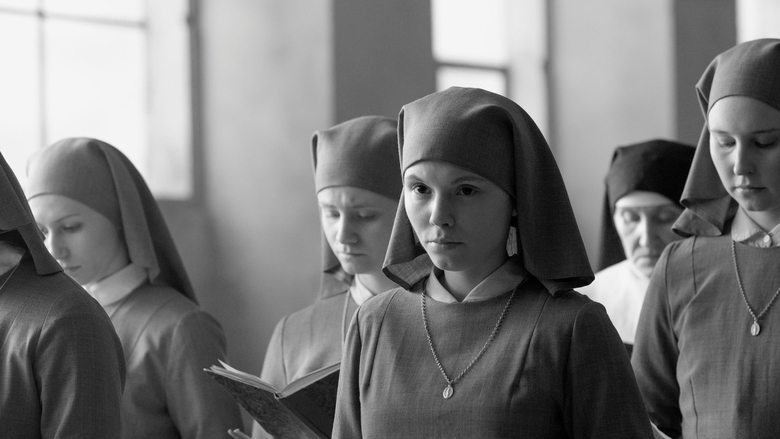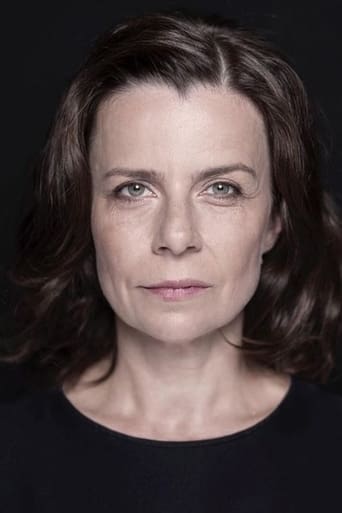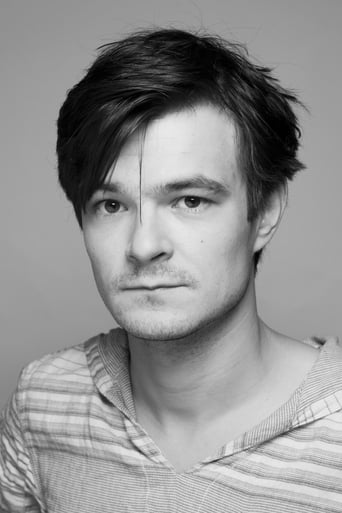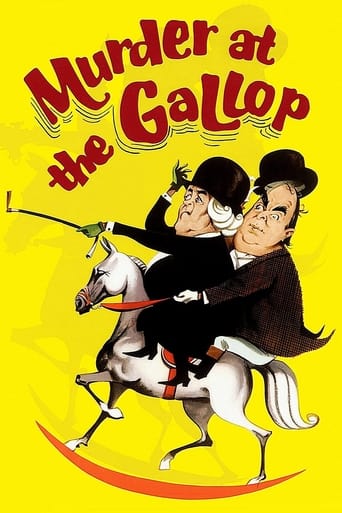Ida (2014)
Anna, a young novitiate in 1960s Poland, is on the verge of taking her vows when she discovers a family secret dating back to the years of the German occupation.
Watch Trailer
Cast


Similar titles
Reviews
I have seen this movie 3 times and every time it hits me hard. The simplicity of the story and authenticity of the characters is what draws you towards it. The cinematography is par excellence and every scene can be a melancholic painting. It's a story about discovering your difficult past, fighting it out and then trying to be at peace with it. Ida & Wanda both central characters handle their uncomfortable pasts differently. Wanda tries to overcome the terrible past by cigarettes, alcohol and sex but isn't able to, and eventually gives up. Ida being more religious(raised as a nun) tries the religious path to overcome these difficulties. But, somehow she gets swayed towards the same path as Wanda and tries it. But just after a day or two realises that , that path isn't for her. Her path had already been decided when she inadvertently started her life in a convent. Normal family life isn't for her, as she has already chosen god or god has chosen her. Last scene of the movie portrays strong determination in her face, and makes us believe that Ida has understood who she is, and will lead a happy life in the Convent. I sincerely hope she does.
Ida is a beautiful film. Set in post-war Poland, the state of the environment is rather bleak. Shots rarely contain more than three people at once, and all sounds excluding a beautiful Bach piano piece played at the end is diegetic. The sets are dirty yet minimalistic, giving it a view of a city which looks lived in. The film follows Ida, or Anna by her Christian name, as she leaves the Convent where she was raised to meet her aunt, Wanda, for the first time. Wanda is played by Agata Kulesza, who makes her feel like a human who has lived a full and complex life, much like our own, instead of a life built strictly within the context of the film. She's a Jewish (albeit atheist), aging, single alcoholic who spends her days mindlessly filling her internal void through sex. This is in stark contrast to the young Ida who spends her days repetitively worshipping god, in preparation to take her vows. Their conflicting values are showcased several times throughout the film in interesting ways. Wanda asks if Ida ever has sinful thoughts of carnal love, to which Ida replies with a no. Wanda replies "That's a shame. You should try, otherwise what sort of sacrifice are these vows of yours?". This is the primary theme of the film. We soon learn Wanda had a child, but her boy was killed during the war for being Jewish, but Ida survived. Wanda has now experienced an example of the theme. She has undoubtedly contemplated suicide prior to the film's beginning, but as she learns more of her loved ones past, she is now able to take her life after experiencing fully what life has offered and with the more knowledge of what life has in store for the future. Unfortunately, she now knows that the sacrifice of suicide is hardly a sacrifice, as she has no future. Her life is, in a way, already over. Wanda kills herself. As Ida returns to the convent, she no longer feels confident in taking her vows. Ida knows she hasn't the slightest clue what she'll be sacrificing, realizing Wanda was right in her prior comment. Or was she? It's a philosophical question for you to decide. Ida chooses to abandon the convent in search of knowledge. The same knowledge Wanda achieved: What sacrifices will my decisions entail. So Ida smokes, drinks, abandons her Habit (Christian hood), and even takes a lover in a young musician. The musician offers her a wonderful life, yet the next day she arises not to accept his love but to yet again leave. The film ends with the first non-diegetic music, as a stunning shot of Ida is shown walking to a destination unknown to the viewer. I believe she chose to go back to the convent, now certain what her sacrifice will entail and ready to take her vows. This is Ida. 80 minutes of stunning black&white cinematography which could truly be screen shotted at any moment and made into a wallpaper. The story is not complicated, fast paced, or modern. It's more reminiscent of Bergman's Wild Strawberries. It's calm, quiet, yet meaningful and elegant. It's a perfect film. 10/10.
delicacy is the basic virtue of a film who presents different bitter subjects in an inspired manner. a film about faith and roots. about life discovered by a fascinating character who seems very far by world's expectations. a film about love and sacrifice who reminds the grace and precision and science to explore the details of the cinema from the East. high lesson of cinema, it is an admirable exploration of the character's nuances. not only for the good cast or for the special art of script but for the force of silence , looks and sound of the words. a film about a young woman front with a new perspective. and her way to self definition. and the gestures who transforms the challenges.
Pawel Pawlikowski's Ida (2013) is undoubtedly the VERY BEST film that I've ever viewed.Although the overt theme of the film is the aftermath of WWII and the Holocaust, the screenplay only uses this as a vehicle to examine another theme, namely, "self discovery". For both Ida and her aunt Wanda, this film is about a path of self discovery that they traveled together. For Ida, the path led to discovering the story of her origins and experiencing life outside of the convent, and then apparently returning to the convent. For Wanda, who built a great life for herself in post-WWII Poland in the state legal system,the path is one of revisiting the horrors of the past, and then not being able to cope with the past, and then finally committing suicide.A remarkable aspect of this film is Ida's apparently "emotionless" and "flat" reaction to all the really remarkable things that she learned about her family history, and the radical experiences that she had outside the convent.Although a superficial analysis of the character Ida's apparent lack of emotional display to the radically new things that she learned and experienced might be that this was just an example of poor acting and poor direction, a deeper analysis reveals this not to be the case. Ida's emotional demeanor is quite appropriate for a woman who has lived within the cloistered confines of a convent since her infancy. She has learned and is practicing what is known in Buddhism as "spiritual equanimity", that is, staying spiritually "centered" and at peace with oneself in the face of any events transpiring in the world around you. It is this "spiritual reserve" that carries Ida through the disruptive news and experiences outside of the convent.The film poignantly contrasts Ida's spiritual equanimity with the character Wanda, Ida's aunt. Although Wanda has achieved great professional success in her life in the aftermath of the horrors of WWII , she apparently is lacking in spiritual equanimity altogether. This is evidenced in the film by her advanced alcoholism, and her sexually promiscuous lifestyle. Wanda has found "inner peace" in the face of her WWII experiences at the bottom of a bottle of vodka, and in having apparently random, transient sexual encounters. When Wanda is forced, by virtue of Ida's unexpected visit from the convent, to revisit the horrors of WWII, she can no longer find inner peace through alcohol and random sex, and this finally leads her to commit suicide.Comparing and contrasting then the characters of Ida and Wanda in this film, we see the filmmaker definitely advocating to the viewer that equanimity, and peace of mind in one's life comes from spiritual strength from within one's self, and not in the external vices, and distractions that the world has to offer us. This is an especially timely and appropriate message in our modern times that are so dominated by a "trivial consumerism" that so easily makes available to us all sorts of "quick fixes" to calm the emotional and visceral distresses that we experience within ourselves., from the candy bar that is in front of us at the checkout stand in the supermarket, to the shiny new car at the car dealership, to the list of virtual "friends" that we have on our Facebook page.Perhaps inadvertently, this film also is very supportive of the Roman Catholic Church and its practices, in the face of modern criticism that the Church is too stepped in symbolism, in abstruse formal practices, and is experiencing moral decay from within (for instance, the pedophilia scandal of recent times). In the character of Ida, this film give a big "thumbs up" to the RC Church, as a religious institution where genuine and sincere spirituality is taught, practiced, and is ultimately achievable. I am not saying that this film convinced me to look at the RC Church in this new light, nor that this filmmaker even consciously wanted to make a such a positive promotion of the RC Church as one of the goals, or "messages" in this film. I am only saying that the apparent sincere, and genuine, and enduring spiritually of the character of the student nun Ida in this film, as exemplified by her calm demeanor, her spiritual equanimity, in the face of her "earth shaking" experiences outside the convent is at least an implicit confirmation of the spiritual validity of the RC Church and its teachings. The fact that Ida apparently returned to the Church at the end of the film, in spite of her experiences in the outside world, also implicitly carries the message that a person with proper spiritual training will choose spiritually over the material pleasures of the world in the end.The storyline in this film is quite innovative, very well conceived, and quite well detailed in the screenplay. There are no unreal "coincidences" in the storyline, and the only "hole" that I could detect in the storyline is the unexplained appearance of the young, handsome saxophone player at Wanda's funeral, seemingly ready for an encounter with Ida. Nevertheless, for such an innovative and complex storyline, the screenplay is very "tight", and well thought out nonetheless.The cinematography is a real strong point of this film. The use of black and white photography emphasizes the sober and somber atmosphere of the film. There is a fair amount of off center framing in this film, that is used for appropriate dramatic effect. The variable lighting, sometimes bright, sometimes shadowed, was also used for appropriate dramatic effect. The sometimes radical editing brings the viewer abruptly to a new scene with very different lighting, with a very different location, and with a .very different emotional tenor, again with appropriate dramatic effect. The contrast in scenes in the countryside, with scenes in the city, with scenes inside the convent were also done with appropriate dramatic effect.20 Stars !!! 20 Stars !!! 20 stars !!!

